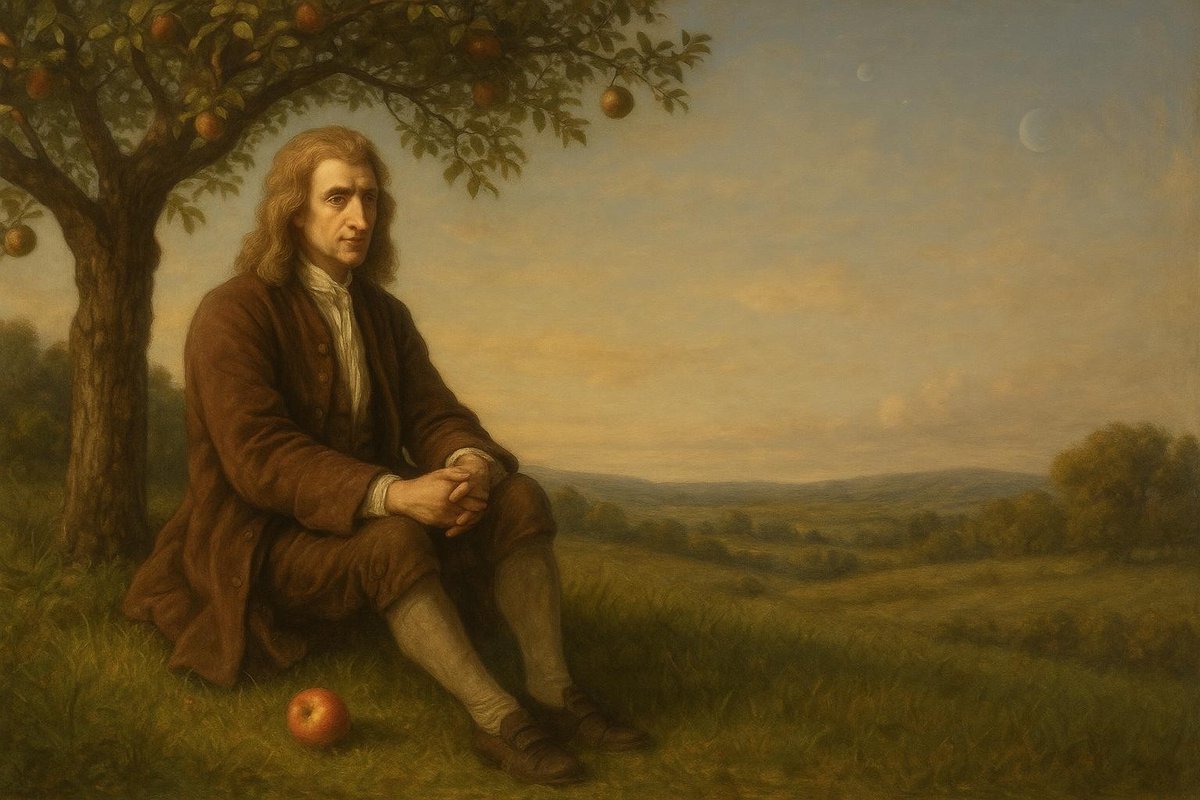
A Surprising Fall: The Apple That Changed Everything
Have you ever wondered why apples fall to the ground and not up into the sky? Interestingly, this very question led to one of the most groundbreaking discoveries in human history: gravity. The story goes that in 1666, a young Isaac Newton was sitting under an apple tree in Woolsthorpe, England, when an apple fell, prompting him to ponder the forces governing motion.1 But the apple’s fall was just the beginning. Before this pivotal moment, the prevailing belief, largely derived from Aristotle, was that heavier objects fell faster than lighter ones. It was Newton, with his unique blend of curiosity and mathematical prowess, who challenged and ultimately reshaped these ideas.
• Before Newton, people thought heavier objects fell faster.
• Newton’s curiosity led him to question this and develop new theories.
As time goes on, Newton’s apple has become a symbol of human curiosity and scientific discovery. The question of why objects fall inspired a comprehensive theory that not only explained phenomena on Earth but also the motion of celestial bodies. No wonder Newton’s insights are considered a cornerstone of the scientific revolution.
Newton’s Theoretical Breakthrough: A Universal Law
Newton’s journey into understanding gravity was not just about the apple. It was about the stars, the moon, and everything in between. He proposed the revolutionary idea that the same force causing the apple to fall also governs the motion of the moon around the Earth and the planets around the Sun. This was captured in his law of universal gravitation, which states that every particle attracts every other particle with a force that is proportional to the product of their masses and inversely proportional to the square of the distance between them.
• Gravity is a universal force affecting both earthly and celestial bodies.
• Newton’s law provided a mathematical framework to explain this force.
Newton’s insights were revolutionary because they introduced a unified explanation for various celestial and terrestrial phenomena. Prior to Newton, there was no comprehensive theory that connected these observations. His work laid the groundwork for future scientific endeavors, dramatically shifting our understanding of the natural world. It’s no wonder his principles are still taught in classrooms today, fostering a sense of wonder and curiosity amongst students worldwide.
Evidence and Implications: Proving the Theory
Proposing a theory is one thing, but proving it is another. Newton’s theory of gravity was supported by meticulous observations and mathematical deductions. He used his laws of motion and universal gravitation to explain the orbits of planets, accurately predicting phenomena such as the return of Halley’s Comet.2 This was a significant achievement, offering tangible proof of his theories.
• Newton’s theory accurately predicted planetary orbits and comet returns.
• His work proved that mathematical principles could explain natural phenomena.
These predictions and their verifications illustrated the power of scientific inquiry and the ability to predict future events based on known laws. Newton’s success in explaining the motion of celestial bodies had profound implications, reinforcing the idea that the universe operates under unchanging physical laws. This laid the groundwork for the future of physics and astronomy, encouraging further exploration and study.
Gravity’s Modern Relevance: More Than Just a Force
Today, gravity is more than just a force pulling us towards the Earth; it is a fundamental aspect of modern physics. Einstein’s theory of general relativity expanded on Newton’s work, describing gravity as the warping of space-time. Despite these advancements, Newton’s laws remain crucial for everyday applications, from engineering to space travel.
• Gravity is a key concept in both classical and modern physics.
• Newton’s laws still apply to many practical applications today.
From understanding satellite orbits to explaining the tides, gravity continues to influence our world in countless ways. Newton’s insights remind us that even the simplest questions can lead to revolutionary discoveries. His work serves as an enduring inspiration, encouraging us to explore the world around us with curiosity and critical thinking.
Fuel Someone Else’s Curiosity
Isn’t it amazing how a simple apple can lead to such profound discoveries? Share this story with others who might find joy in the wonders of science. Encourage them to ponder, question, and explore because every great journey begins with a curious mind. Who knows? Maybe one day, they’ll make a discovery that changes the world.

Leave a Reply